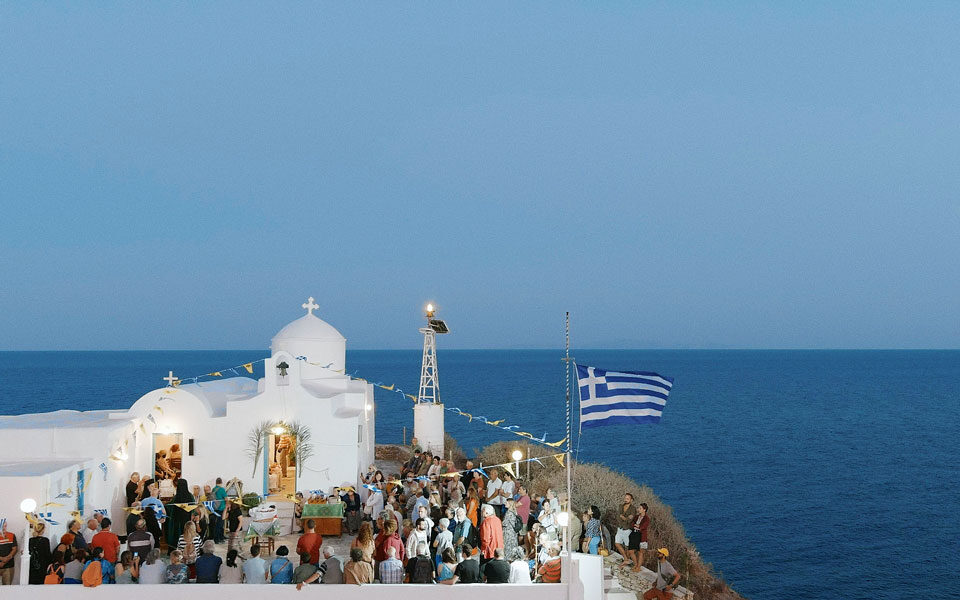The Museum of Cycladic Art in Athens, home to one of the world’s most important collection of prehistoric art from the Cyclades islands, has launched a brand-new initiative to preserve, restore and promote the unique character of Greece’s most iconic island group.
The initiative, “Cycladic Identity,” will focus specifically on culture, biodiversity, and intangible heritage, and serve as a platform for attracting sponsorship and allocating resources to programs implemented by heritage and environmental organizations that are already active on the islands.
So far, nine projects are being implemented on eight islands: Amorgos, Andros, Donoussa, Ios, Kea, Mykonos, Paros, and Sikinos.
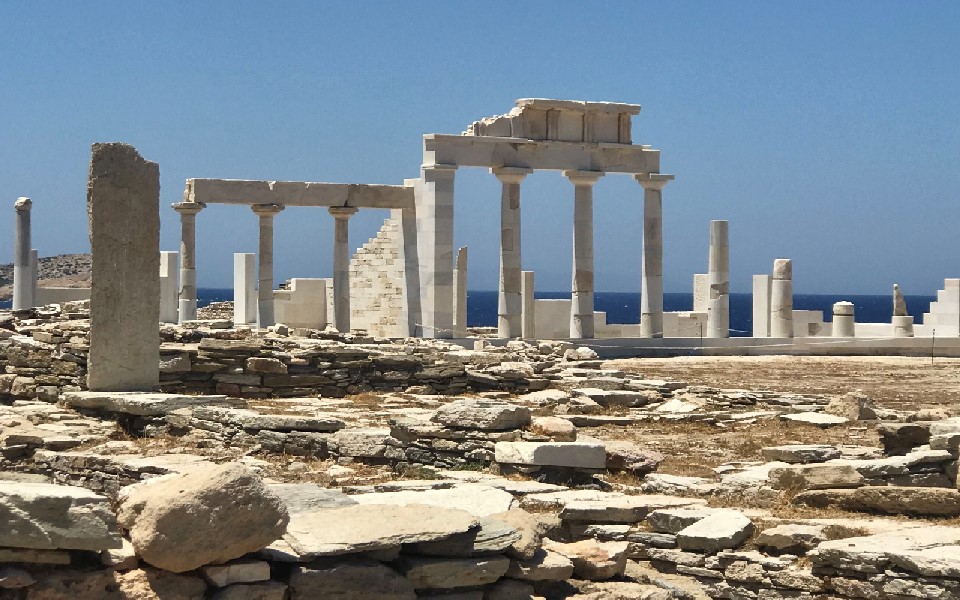
© Yannos Kourayos
“The Museum of Cycladic Art owes its existence to the Cycladic islands. And we feel it is now time to give back to them. The Cycladic Identity initiative is our way of transforming our words of gratitude into works of impact,” said Museum President and CEO, Sandra Marionpoulou, in a recent press release.
The initiative represents a natural evolution in the Museum of Cycladic Art’s many years of work. Founded in 1986 to house the collection of Cycladic and ancient Greek art belonging to Nicholas and Dolly Goulandris, it is the Museum’s first organized effort to expand its mission to give back to the Cycladic islands, where the eponymous Early Bronze Age civilization was born, some 5,000 years ago.
“We feel that it is important to be part of the Cyclades, to protect them in order to preserve their Cycladic identity. Our goal is to stay close to local communities and to identify their needs. To be their supporters and their partners,” continued Sandra Marinopoulou.
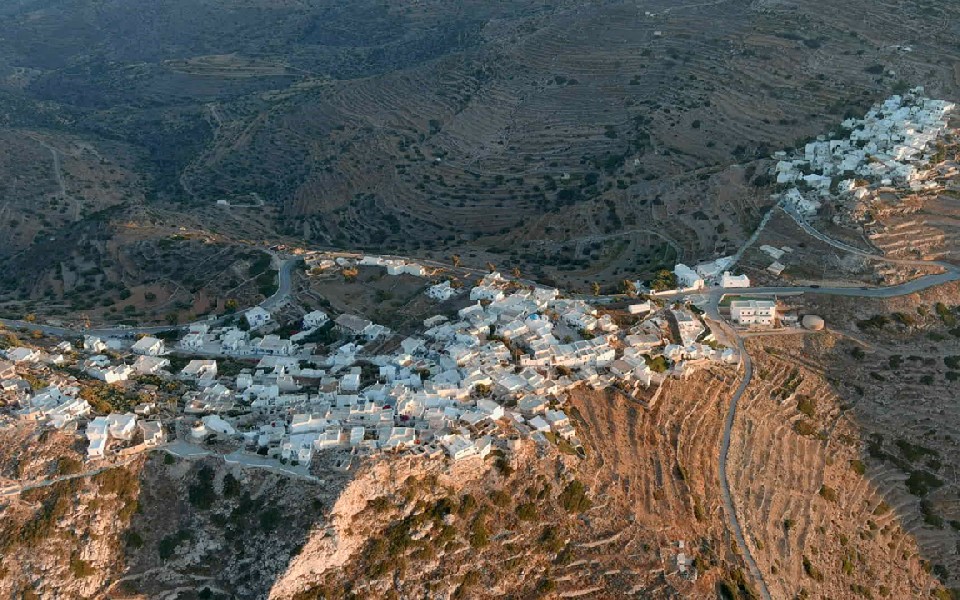
© Anemon Productions
By supporting impactful projects, and recognizing culture, biodiversity and intangible heritage as integral parts of the Cycladic identity, the initiative seeks to create a lively dialogue with the island communities to map their needs and support programs aimed at preserving their local customs and traditions.
“Today, local societies are more vulnerable than ever to increased tourism, the abandonment of traditional customs and their rituals, but also climate change,” Marinopoulou added. “Cycladic Identity seeks to provide the means and motivate the islanders to actively participate in the preservation of their own heritage. Its elements are what has shaped local communities from the past to the present and hold the potential to lead them to a sustainable future.”
The islands’ archaeological sites and historic structures, along with their local flora and fauna, and rich heritage constitute the connective tissue between the island communities, creating a sense of common identity. To that end, culture, biodiversity, and intangible heritage (including customs, social rituals, traditional practices, and arts) form the main axes of the Cycladic Identity initiative.
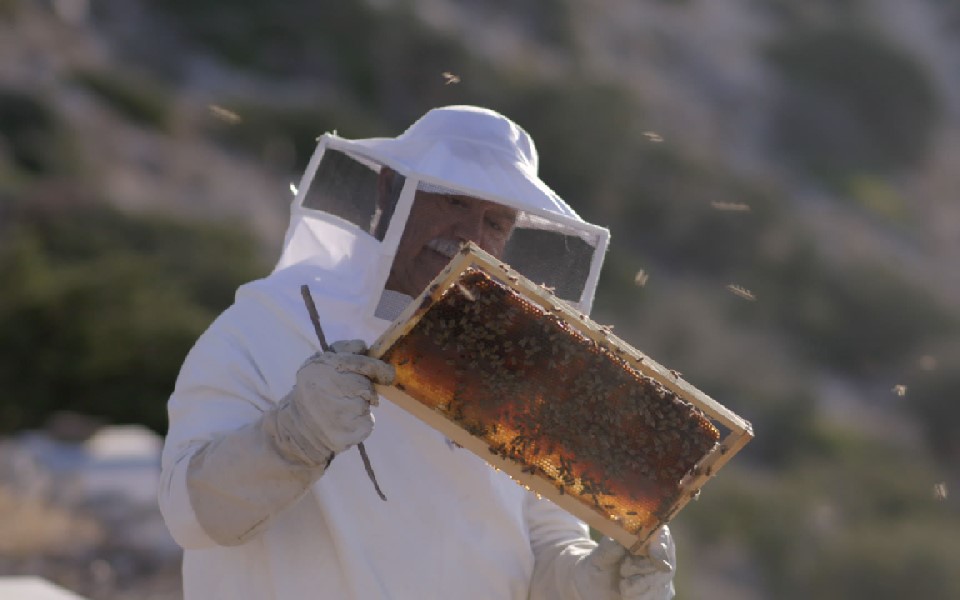
© Anemon Productions
Cycladic Identity received a total of 24 complete program applications, covering 14 islands within the Cyclades. The applications were assessed and evaluated by the four-person Scientific Committee, individuals with long-term professional activity in the field: Dr Demetrios Athanasoulis, Director of the Ephorate of Antiquities of Cyclades, archaeologist Dr Michael Boyd, Senior Research Affiliate, Science and Technology in Archaeology and Culture Research Center, The Cyprus Institute, Demetres Karavellas, CEO of WWF Greece, and archaeologist Dr Angeliki Kosmopoulou, Executive Director of the Athanasios C. Laskaridis Charitable Foundation.
As of March 31, nine proposals were selected on eight islands. The next funding period covers the year 2024, and selected programs will be announced at the beginning of the new year.
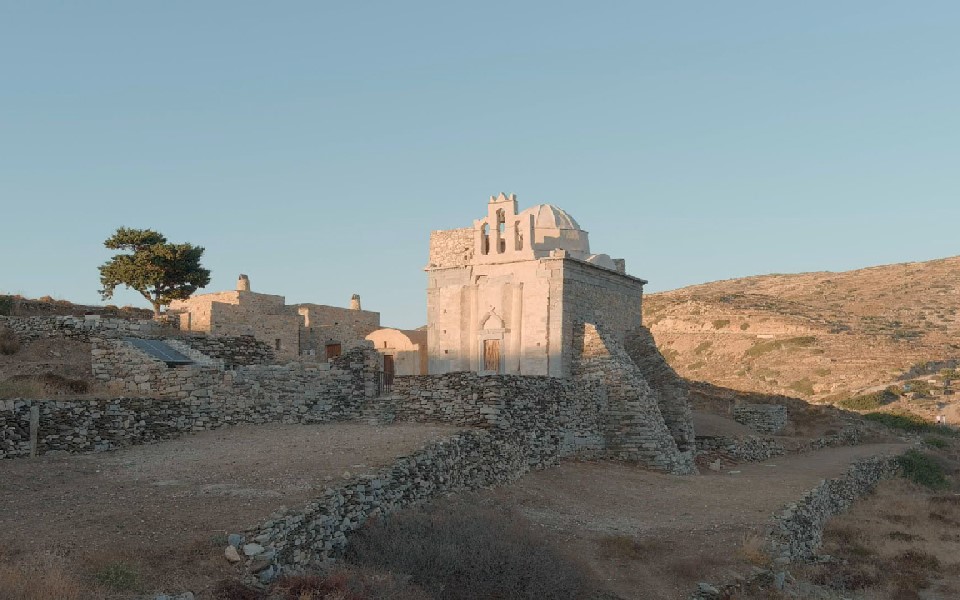
© Anemon Productions
The nine programs are:
“Ancient Quarries of Paros – Stability and accessibility of underground tunnels” by NGO Paros Ancient Marble Quarries Park
“Traditional water management practices in the central mountainous area of Andros: Recording, preservation, interpretation and promotion actions” by the Andros Research Center
“Recounting and documenting the art of dry stone walling (xerolithia)” by the Municipal Enterprise for the Environmental Protection, Education and Development of Mykonos
“Recording traditional instrument players of Kea to safeguard, preserve and promote traditional music as intangible cultural heritage” by the Municipal Public Benefit Organization of Kea
“Development of a website for hosting, maintaining, and promoting the Oral History Archive of Donoussa” by POSEIDON Cultural and Environmental Association of Donoussa
“Listen to the story…” by the Center for the Study & Dissemination of Myths & Folktales (Kea)
“Paths of Culture in Sikinos: Creation of a navigation and information application” by the Hellenic Society for the Environment and Cultural Heritage
“Intangible Cultural Heritage of Amorgos – Recording Traditions” by the Municipal Public Benefit Organization of Amorgos
“Cycladic Youth Gaze” by Cinemathesis (Ios)
For more information on the Cycladic Identity initiative and its focus areas, please visit the official website.

